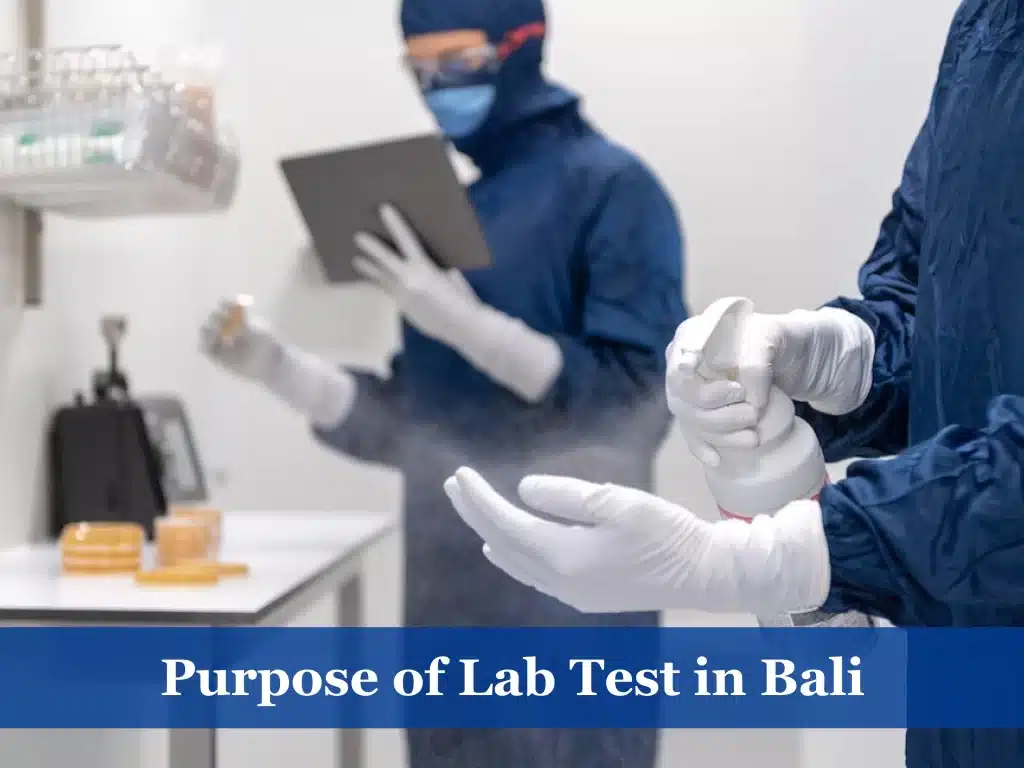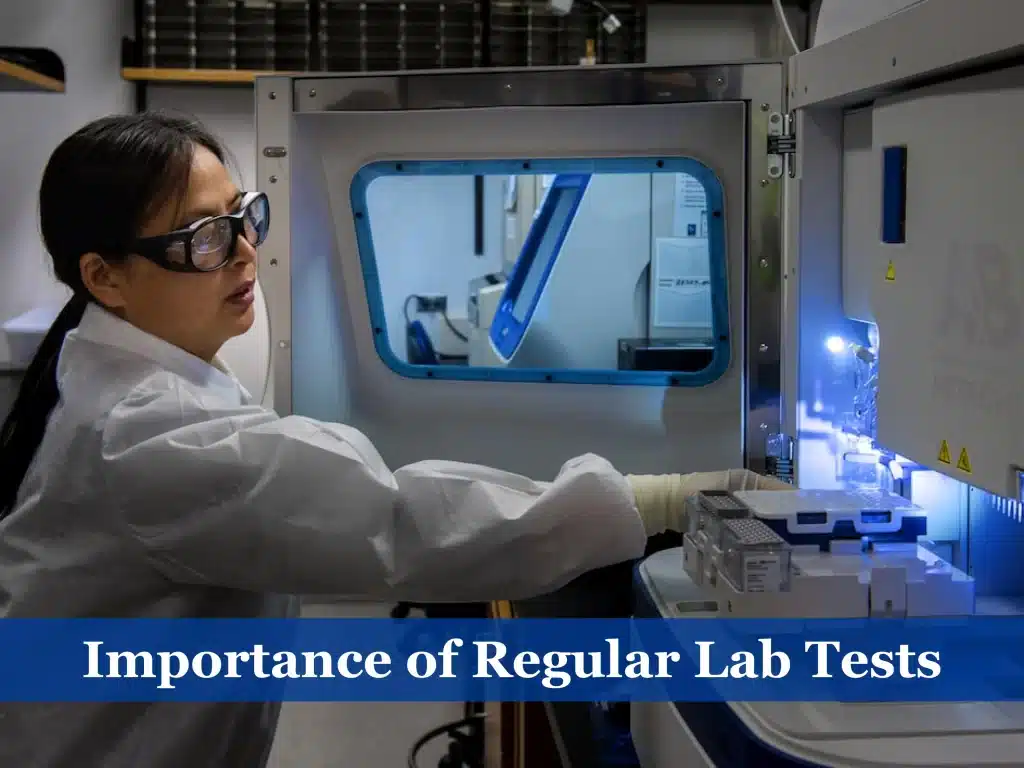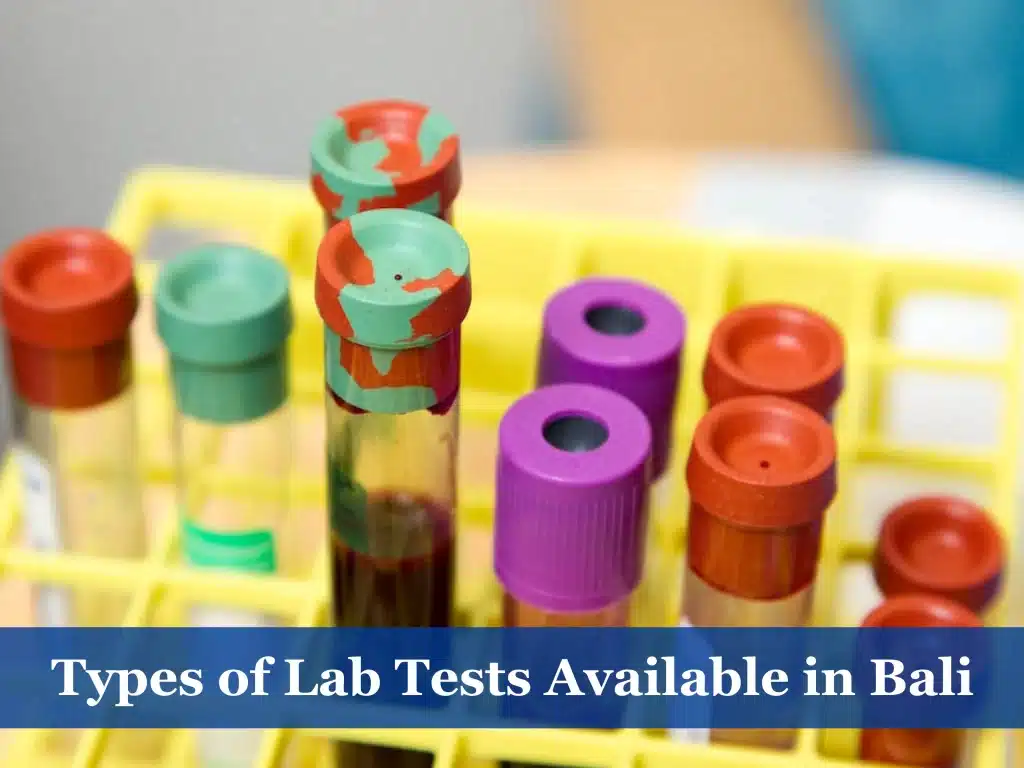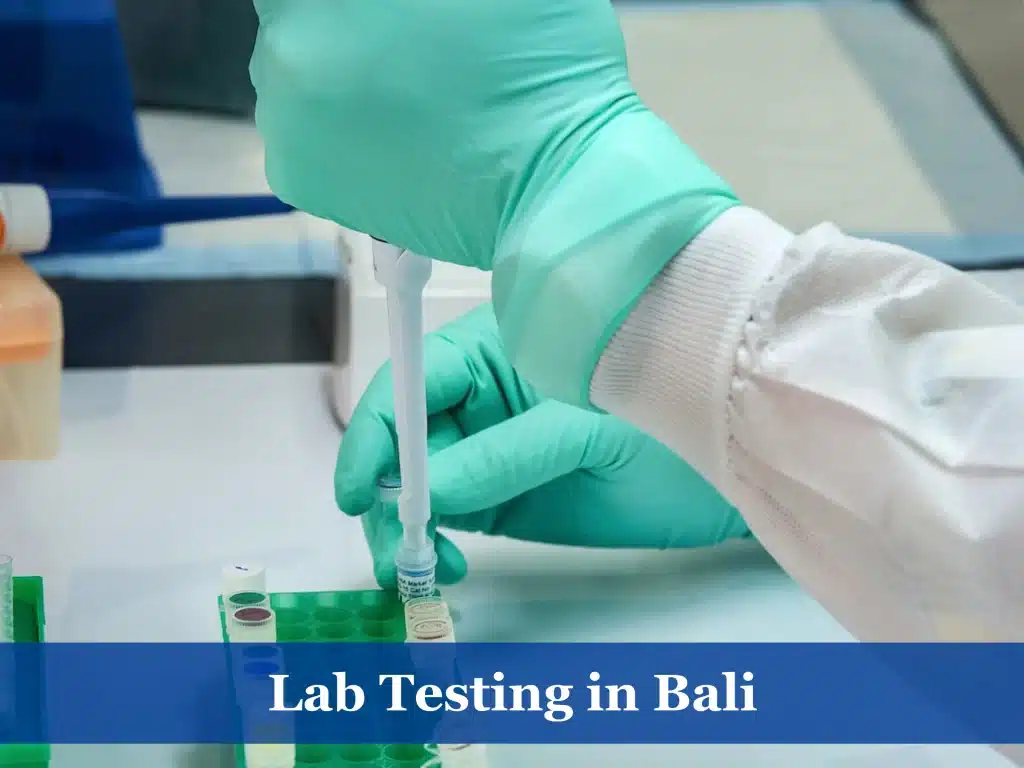Lab testing is an essential component of healthcare in Bali, playing a critical role in maintaining good health and detecting potential health issues. It encompasses the examination of samples such as blood, urine, and tissue to diagnose and monitor various diseases, conditions, and the overall health of the body. In Bali, lab test Bali is of paramount importance in ensuring the well-being of both residents and visitors to the island.
Lab testing is crucial to maintaining good health and detecting potential health issues. It involves the examination of samples such as blood, urine, and tissue to diagnose and monitor diseases, conditions, and the body’s overall health. In Bali, lab testing plays a critical role in ensuring the well-being of residents and visitors.

Purpose of Lab Test in Bali
The purpose of lab tests Bali is the same as in any other place – to diagnose, monitor, and manage various health conditions. Bali has many clinics and hospitals that offer a wide range of lab tests, including blood tests, urine tests, stool tests, imaging tests, and more. These tests are used to assess the overall health of patients, detect diseases, and evaluate the effectiveness of treatment. With the availability of modern technology and equipment, lab tests in Bali are of high quality, providing accurate and reliable results that help physicians make informed decisions about patient care.

Importance of Regular Lab Tests
Regular lab tests are essential because they can detect potential health problems early on, allowing for early treatment and preventing complications. Some of the benefits of regular lab tests include the following:
Early Detection of Diseases and Conditions
Lab tests can detect diseases and conditions before symptoms appear. For example, a blood test can detect high cholesterol levels, increasing the risk of heart disease. Early detection allows for early treatment, which can prevent complications.
Prevention of Complications and Diseases
Regular lab tests can prevent complications by monitoring conditions such as diabetes and high blood pressure. For example, a blood test can detect high blood sugar levels, which can be an early sign of diabetes. Early intervention can prevent complications such as nerve damage, blindness, and kidney disease.
Monitoring of Chronic Conditions
Lab tests are used to monitor chronic conditions such as heart disease, diabetes, and kidney disease. Monitoring allows healthcare providers to adjust treatment as needed and prevent complications.
Peace of Mind and Reduced Anxiety
Regular lab tests provide peace of mind for individuals worried about their health. Knowing that they regularly monitor their health through lab tests can reduce anxiety and stress, allowing individuals to focus on other aspects of their lives. This can lead to an overall improvement in mental and emotional well-being.

Types of Lab Tests Available in Bali
Bali has several types of lab test Bali available to residents and visitors. The most common types of lab tests include:
Complete Blood Count (CBC)
A standard blood test that provides information about the number and types of cells in the blood. It is used to evaluate a person’s overall health and detect a wide range of disorders, including anemia, infection, and blood cancers.
Blood Glucose (Sugar) Test
A blood glucose test measures the glucose (sugar) level in the blood. It can diagnose diabetes and monitor blood sugar levels in people with diabetes.
Lipid Profile Test
A lipid profile test measures the levels of cholesterol and triglycerides in the blood. It can assess the risk of heart disease and help guide treatment decisions for managing cholesterol levels.
Kidney Function Test
A kidney function test measures creatinine levels and other substances in the blood produced by the kidneys. It can detect kidney disease and monitor kidney function.
Urine Feces Test
A urine feces test involves the analysis of urine and fecal samples to detect various health issues, such as urinary tract infections, gastrointestinal disorders, and parasitic infections.
STD Test
An STD (sexually transmitted disease) test checks for the presence of infections transmitted through sexual contacts, such as HIV, chlamydia, gonorrhea, and syphilis.
Dengue Test
A dengue test detects the presence of a dengue virus or antibodies produced in response to the infection. It can diagnose and differentiate between primary and secondary dengue infections.
Typhoid Fever Test
A typhoid fever test identifies the presence of Salmonella typhi bacteria, which cause typhoid fever. This can be done through blood, stool, or bone marrow cultures, as well as serological tests like the Widal test.
Blood Electrolyte Test
A blood electrolyte test measures the levels of electrolytes such as sodium, potassium, and calcium in the blood. It can help diagnose and monitor conditions affecting electrolyte balance, such as dehydration, kidney disorders, and heart conditions.

How to Book a Lab Test in Bali
Booking a lab test Bali is easy and convenient. There are several ways to book a lab test, including:
Online Booking Platforms
Several online booking platforms offer lab testing services in Bali. These platforms allow users to book lab test Bali online and schedule appointments at a convenient time and location.
Direct Booking at the Lab
Many labs in Bali allow patients to book appointments directly at the lab. Patients can call or visit the lab to schedule an appointment.
Regarding reliable and accountable clinics that offer lab test Bali, SalineBali Clinic stands out as a top choice. With its commitment to providing the best service and accurate results, SalineBali Clinic is an excellent option for various lab tests. By choosing SalineBali Clinic, you can trust that you will receive professional care and dependable results. Additionally, keep in mind that some labs in Bali offer package deals that combine multiple lab test Bali, providing a more comprehensive assessment of your health. Consider these options to optimize your healthcare experience and ensure your well-being.
Cost of Lab Test Bali
The cost of lab test Bali varies depending on the type of test, the lab, and the location. However, lab tests in Bali are generally affordable compared to other countries.

Insurance Coverage for Lab Test Bali
Most health insurance plans cover the cost of lab tests. However, it is essential to check with the insurance provider to ensure that the lab test is covered under the policy. Patients should also confirm that the lab is in the insurance provider’s network to avoid out-of-pocket expenses.
Patients should be aware that some lab tests may require prior authorization from the insurance company before they can be covered. This means that the patient or their healthcare provider must submit a request to the insurance company for approval before the lab test can be performed. It is essential to follow the insurance company’s guidelines and procedures to avoid denying coverage or unexpected expenses. By understanding insurance coverage for lab tests, patients can ensure they receive the necessary tests without the financial burden and make informed decisions about their healthcare.
SalineBali Clinic understands the importance of insurance coverage for lab tests and strives to accommodate patients worldwide. The clinic welcomes and accepts insurance plans from various providers, ensuring that patients can access the necessary lab tests without incurring excessive out-of-pocket expenses. It is recommended that patients verify their insurance coverage for lab tests and confirm if the SalineBali clinic is within their insurance provider’s network.
Patients may also need to follow their insurance company’s guidelines, including obtaining prior authorization for specific tests. By being informed about insurance coverage and working in collaboration with the SalineBali clinic, patients can receive the necessary lab tests they need while minimizing financial concerns. Prioritizing your health and utilizing insurance coverage can lead to a smoother and more affordable healthcare experience.



